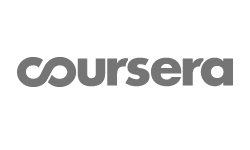Problem solving by programming has a lot of influence on computational thinking improvement. Programming learning has been self-directed based on the individual’s thoughts and principles. However, the revised informatics curriculum in 2015 puts impo...
http://chineseinput.net/에서 pinyin(병음)방식으로 중국어를 변환할 수 있습니다.
변환된 중국어를 복사하여 사용하시면 됩니다.
- 中文 을 입력하시려면 zhongwen을 입력하시고 space를누르시면됩니다.
- 北京 을 입력하시려면 beijing을 입력하시고 space를 누르시면 됩니다.
https://www.riss.kr/link?id=A105596112
- 저자
- 발행기관
- 학술지명
- 권호사항
-
발행연도
2018
-
작성언어
Korean
- 주제어
-
KDC
004
-
등재정보
KCI등재
-
자료형태
학술저널
- 발행기관 URL
-
수록면
163-169(7쪽)
-
KCI 피인용횟수
0
- DOI식별코드
- 제공처
-
0
상세조회 -
0
다운로드
부가정보
다국어 초록 (Multilingual Abstract)
Problem solving by programming has a lot of influence on computational thinking improvement. Programming learning has been self-directed based on the individual’s thoughts and principles. However, the revised informatics curriculum in 2015 puts importance on collaborative learning. Collaborative learning emphasizes results differently from cooperative learning, which emphasizes problem-solving processes. And cooperative learning leads to structured learning, such as role sharing and activity stages, within a small group, while collaborative learning leads to unstructured learning. Therefore, it is becoming more in collaborative learning that peer interaction can be affected by learners’ cognitive style. In this paper, we propose the effect of cognitive style on problem solving ability in collaborative learning for problem solving by programming. As a result, collaborative learning was effective in improving problem solving ability and there was no significant difference in cognitive style.
참고문헌 (Reference)
1 권보섭, "프로그래밍 학습에서 협동학습이 문제해결력에 미치는 효과" 한국콘텐츠학회 14 (14): 491-498, 2014
2 김수환, "프로그래밍 과정에서 나타나는 초보학습자들의 행동 및 사고과정 분석" 한국컴퓨터교육학회 14 (14): 13-21, 2011
3 김윤영, "분할 정복 알고리즘 학습이 창의적 문제 해결에 미치는 효과" 한국컴퓨터교육학회 16 (16): 9-18, 2013
4 "https://www.getadministrate.com/blog/collaborative-and-cooperative-learning/"
5 "https://icpc.baylor.edu"
6 "The revised Informatics curriculum in 2015"
7 김지현, "The Effects of the CT-based Collaborative Scratch Programming Class on the Creative Problem Solving and Communication Ability of Gifted Elementary School Students" 교육연구원 31 : 29-40, 2015
8 권보섭, "Teaching-Learning Model for Programming Language Learning with Two-Step Feedback" 한국컴퓨터정보학회 22 (22): 101-106, 2017
9 Jay L. Devore, "Probability and statistics for Engineering and the sciences" Brooks/Cole Publishing Company 1991
10 Noreen M. Webb, "Group Interaction and Achievement in Small Groups: Stability Over Time" 20 (20): 411-423, 1983
1 권보섭, "프로그래밍 학습에서 협동학습이 문제해결력에 미치는 효과" 한국콘텐츠학회 14 (14): 491-498, 2014
2 김수환, "프로그래밍 과정에서 나타나는 초보학습자들의 행동 및 사고과정 분석" 한국컴퓨터교육학회 14 (14): 13-21, 2011
3 김윤영, "분할 정복 알고리즘 학습이 창의적 문제 해결에 미치는 효과" 한국컴퓨터교육학회 16 (16): 9-18, 2013
4 "https://www.getadministrate.com/blog/collaborative-and-cooperative-learning/"
5 "https://icpc.baylor.edu"
6 "The revised Informatics curriculum in 2015"
7 김지현, "The Effects of the CT-based Collaborative Scratch Programming Class on the Creative Problem Solving and Communication Ability of Gifted Elementary School Students" 교육연구원 31 : 29-40, 2015
8 권보섭, "Teaching-Learning Model for Programming Language Learning with Two-Step Feedback" 한국컴퓨터정보학회 22 (22): 101-106, 2017
9 Jay L. Devore, "Probability and statistics for Engineering and the sciences" Brooks/Cole Publishing Company 1991
10 Noreen M. Webb, "Group Interaction and Achievement in Small Groups: Stability Over Time" 20 (20): 411-423, 1983
11 "Etnews"
12 Sharan, S., "Cooperative learning in small groups: Recent Methods and Effects in Achievement Attitudes, and Ethnic, Relations" 50 (50): 241-271, 1980
13 최현종, "Anderson의 교육목표분류법을 이용한 중학교 정보 교과서의 수업목표 분석에 관한 연구" 한국컴퓨터교육학회 17 (17): 51-63, 2014
14 Sangjin An, "A Study of Programming Interest" 17 (17): 103-106, 2013
15 Jamin Carson, "A Problem with problem solving: Teaching thinking without teaching knowledge" 17 (17): 7-14, 2007
동일학술지(권/호) 다른 논문
-
- 한국컴퓨터정보학회
- 김호용(Ho Yong Kim)
- 2018
- KCI등재
-
강화된 진화 탐색이 생성하는 큰 자손 기반 효과적인 다중 레이블 특징 선별
- 한국컴퓨터정보학회
- 임현기(Hyunki Lim)
- 2018
- KCI등재
-
- 한국컴퓨터정보학회
- 안성옥(Syoungog An)
- 2018
- KCI등재
-
Design of Boat Racing Game using Buoyant Force
- 한국컴퓨터정보학회
- Syoungog An(안성옥)
- 2018
- KCI등재
분석정보
인용정보 인용지수 설명보기
학술지 이력
| 연월일 | 이력구분 | 이력상세 | 등재구분 |
|---|---|---|---|
| 2026 | 평가예정 | 재인증평가 신청대상 (재인증) | |
| 2020-01-01 | 평가 | 등재학술지 유지 (재인증) |  |
| 2017-01-01 | 평가 | 등재학술지 유지 (계속평가) |  |
| 2013-01-01 | 평가 | 등재학술지 유지 (등재유지) |  |
| 2010-01-01 | 평가 | 등재학술지 유지 (등재유지) |  |
| 2007-01-01 | 평가 | 등재학술지 선정 (등재후보2차) |  |
| 2006-01-01 | 평가 | 등재후보 1차 PASS (등재후보1차) |  |
| 2004-07-01 | 평가 | 등재후보학술지 선정 (신규평가) |  |
학술지 인용정보
| 기준연도 | WOS-KCI 통합IF(2년) | KCIF(2년) | KCIF(3년) |
|---|---|---|---|
| 2016 | 0.44 | 0.44 | 0.44 |
| KCIF(4년) | KCIF(5년) | 중심성지수(3년) | 즉시성지수 |
| 0.43 | 0.38 | 0.58 | 0.15 |




 ScienceON
ScienceON DBpia
DBpia






